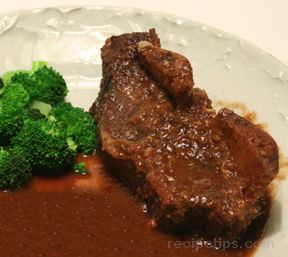Food synergy: The trick food combinations you need to improve your diet
Everyone wants to eat healthily in 2024! Even if it's just for Instagram, we should be commended for trying. While everyone is talking about various diets on social media and how great the no-oil cooking method is, there is actually a simpler approach to eat healthily, and that is through food synergy.
Many foods work better when eaten together, much like how Tom completes Jerry. Combining some foods improves their nutritional value and the way important nutrients are absorbed.
But why do some foods perform better when consumed together?
According to clinical nutritionist Sangeeta Tiwari of Artemis Lite NFC, "some combinations enhance nutrient absorption, optimise digestion, and even boost flavour," India Today is informed.
For instance, combining foods high in vitamin C with those high in iron enhances the absorption of iron. Enzymes and complementary nutrients complement one another and aid in the body's absorption and utilization.
Adding a variety of textures and flavors to meals can improve satiety and nutrient intake by making them more satisfying.
Consider nutrition as a puzzle in which every food has a special role to play. However, magic happens when you combine them precisely," renowned nutritionist Suman Agarwal continues.
"Eating habits play a bigger role in nutrition than just the foods you eat. This synergy results in a more nutritionally dense and well-balanced meal because each food item contains certain nutrients that the other may not have," she continues.
In addition, clinical dietitian Chaitali Rajendra Rane of PD Hinduja Hospital explains the science behind food synergy by saying that it all comes down to the phytochemicals found in the foods being consumed together.
These phytochemicals work in concert to create a synergy that improves cellular absorption and nutritional value.
You have to try these food pairings.
- Spinach and lemon juice: Lemon juice's vitamin C improves spinach's ability to absorb iron, raising blood levels and facilitating healthy blood formation.
Tomatoes and olive oil: Olive oil's fat aids in the body's absorption of lycopene, a potent antioxidant present in tomatoes that supports heart health and lowers the risk of some cancers.
-
Yoghurt and berries: Yogurt's probiotics and the antioxidants and fiber in berries work together to support immune system and gut health. In addition, they offer a delicious and wholesome snack choice.
Oats and almonds: Soluble fiber from oats and heart-healthy fats from almonds work together to promote heart health, stabilize blood sugar levels, and keep the stomach fuller for longer periods of time.
Onion and chickpea (for energy): Chickpeas and onions, which are rich in nutrients and fiber, are important sources of energy. Chickpeas' amino acid activity is stimulated by onions, which helps to provide energy.
Green tea and lemon(For heart health): Lemon has the vitamin C power and green tea is full of antioxidants. By preventing plaque development and combating oxidative stress, these antioxidants improve heart health.
Yoghurt and banana (for strength after exercise): This lethal blend of fresh yoghurt and banana helps rebuild and repair muscles and energy after exercise. Proteins found in yogurt help maintain muscle mass. Banana, on the other hand, is packed with carbohydrates that help refuel energy and prevent muscle soreness.
Boiled egg with salad: Since the yolk of an egg increases the absorption of carotenoids, eating boiled eggs with salads such as tomatoes, carrots, and green leafy vegetables is recommended.Ò
Onion and garlic:It is advised to eat garlic and onions together because they enhance insulin sensitivity in diseases like diabetes mellitus.
Turmeric and black pepper along with fish: It is recommended to reduce oxidative stress in the body by marinating fish in a mixture of black pepper and turmeric. When turmeric and black pepper are combined, piperine increases curcumin's bioavailability by 1,000 times.
However, keep in mind before attempting these meal pairings...
Portion control: Even though certain combinations offer health benefits, consuming them in moderation is necessary to maintain a balanced diet and prevent overeating.
Quality of ingredients: Choose fresh, whole foods whenever possible to ensure you're getting the maximum nutritional value from your food combinations.
Personal dietary needs: Be mindful of any dietary restrictions or allergies that you may have while choosing food combinations to ensure that they align with your individual health goals and requirements and don't cause any harm.
Maintain balance: Don't just solely depend on specific combinations for all your nutritional needs. Make sure that you have a balanced diet that is rich in all the necessary nutrients and vitamins.
Food safety: Pay attention to food hygiene and safety practices to minimise the risk of food-borne diseases, especially when you are consuming raw or minimally processed ingredients.
Timing: Pay attention to the timing of meals to support digestion and nutrient absorption.
What's Your Reaction?




















































































